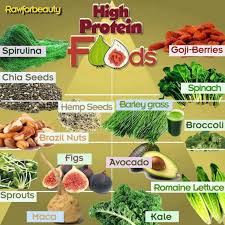Lavender:
Lavender oil is known for its calming and relaxing properties, and has been used aromatherapeutically for alleviating insomnia, anxiety, depression, restlessness, dental anxiety, and stress. It has also been proven effective for nearly all kinds of ailments, from pain to infections.
It is particularly fascinated by its oil potential in fighting antifungal-resistant skin and nail infections. Scientists from the University of Coimbra found that lavender oil is lethal to skin-pathogenic strains known as dermatophytes, as well as various Candida species. Lavender oil can also be used to:
Relieve pain. It can ease sore or tense muscles, joint pain and rheumatism, sprains, backache, and lumbago. Simply massage a small amount of lavender oil onto the affected area. Lavender oil may also help lessen pain following needle insertion.
Treat various skin disorders like acne, psoriasis, eczema, and wrinkles. It also helps form scar tissues, which may be essential in healing wounds, cuts, and burns. Lavender can also help soothe insect bites and itchy skin (lavender oil can help ward off mosquitoes and moths. It is actually used as an ingredient in some mosquito repellents).
Keep your hair healthy. It helps kill lice, lice eggs, and nits. The Natural Medicines Comprehensive Database (NMCB) says that lavender is possibly effective for treating alopecia areata (hair loss), boosting hair growth by up to 44 percent after just seven months of treatment.11
Improve your digestion. This oil helps stimulate the mobility of your intestine and stimulates the production of bile and gastric juices, which may help treat stomach pain, indigestion, flatulence, colic, vomiting, and diarrhea.
Relieve respiratory disorders. Lavender oil can help alleviate respiratory problems like colds and flu, throat infections, cough, asthma, whooping cough, sinus congestion, bronchitis, tonsillitis, and laryngitis. It can be applied on your neck, chest, or back, or inhaled via steam inhalation or through a vaporizer.
Stimulate urine production, which helps restore hormonal balance, prevent cystitis (inflammation of the urinary bladder), and relieve cramps and other urinary disorders.
Improve your blood circulation. It helps lower elevated blood pressure levels and can be used for hypertension.
Thyme:
Thyme is a fragrant herb that makes a wonderful addition to your cooking, in part because it is rich in antioxidants. Thyme contains health-boosting flavonoids including apigenin, naringenin, luteolin, and thymonin, and has been shown to protect and increase the percentage of healthy fats found in cell membranes. As reported by the George Mateljan Foundation:12 “In particular, the amount of DHA (docosahexaenoic acid, an omega-3 fatty acid) in brain, kidney, and heart cell membranes was increased after dietary supplementation with thyme.”
Thyme is also nutrient dense, containing vitamin C, vitamin A, iron, manganese, copper, and dietary fiber. When used in cooked dishes, thyme may also help inhibit glycation and the formation of dangerous advanced glycation (meaning glucose broken down) end products (AGEs) in your food, making thyme a potential preventer of heart disease and premature aging. Due to thyme oil’s antibacterial, antispasmodic, anti-rheumatic, expectorant, hypertensive, and calming properties, it also has a long list of topical uses, including:
Home remedy – Thyme oil is used to relieve and treat problems like gout, arthritis, wounds, bites, and sores, water retention, menstrual and menopausal problems, nausea and fatigue, respiratory problems (like colds), skin conditions (oily skin and scars), athlete’s foot, hangovers, and even depression.
Aromatherapy oil – The oil can be used to stimulate the mind, strengthen memory and concentration, and calm the nerves.
Hair product – It is said that thyme oil can prevent hair loss. It is used as a treatment for the scalp and is added to shampoos and other hair products.
Skin product – Thyme oil can help tone aged skin and prevent acne outbreaks.
Mouthwashes and herbal rinses – Like peppermint, wintergreen, and eucalyptus oils, thyme oil is used to improve oral health.
Insecticide/insect repellent – Thyme oil can keep insects and parasites like mosquitoes, fleas, lice, and moths away.
Chamomile:
Chamomile is most popular in tea form for use to calm upset stomach and help support restful sleep. Germany’s Commission E (a government organization) has even approved the use of chamomile for reducing swelling on your skin and fighting bacteria. Chamomile is a powerful anti-inflammatory that also has antibacterial, anti-spasmodic, anti-allergenic, muscle relaxant, and sedative properties. It is used to treat psoriasis, eczema, chickenpox, diaper rash, slow-healing wounds, abscesses, and gum inflammation, and according to Herb Wisdom may also be useful for the following conditions:
The oil serves many medicinal purposes, but one of the best-documented uses is for relaxation. The oil has a calming effect on people, and can be used to help induce sleep, ease frayed nerves, and promote a general sense of calmness and well being. It is great for those with nervousness or anxiety problems.
Aside from having mental calming properties, chamomile is also good at relaxing sore muscles and tight joints.
It can ease menstrual cramps and back aches, as well as relax the digestive system to ease upset stomach or indigestion issues.
When applied topically to the skin, it soothes redness and irritation. For this reason, it is a common ingredient in skincare. It also eliminates itchiness and is good for those with allergic reactions. Sometimes chamomile is used on rashes. Because of its anti-inflammatory properties, it can work to take down swelling caused by rashes or skin irritants.
Dandelion:
Dandelion, a plant, has traditionally been used as a liver tonic, useful for detoxification and improving liver function. Dandelion is known as a stimulant that is typically used for kidney and liver disorders. It is also traditionally used to reduce the side effects of prescription drugs, as well as to treat infections, gallbladder problems, water retention and swelling.15 Dandelion greens, which you can prepare simply by blanching them in boiling water for 20 seconds to help remove their bitter flavor (they can also be added to vegetable juice), contain many nutrients, including vitamin C, vitamin B6, thiamin, riboflavin, calcium, iron, potassium, and manganese. They are a particularly good source of vitamin A and may also have cancer fighting properties.
So believe it or not plants enhance our lives and with technology it will further expand in helping human lives.
QUOTE FOR THE DAY:
“We don’t have stems and we don’t flower, but our body parts, like those of plants, are controlled by circadian clocks,”. Clocks operate more or less the same way in all organisms, but some aspects of clock function are easier to study in plants.
Laurie Tompkins-NIH geneticist, (National Institute of General Medicine Sciences).

